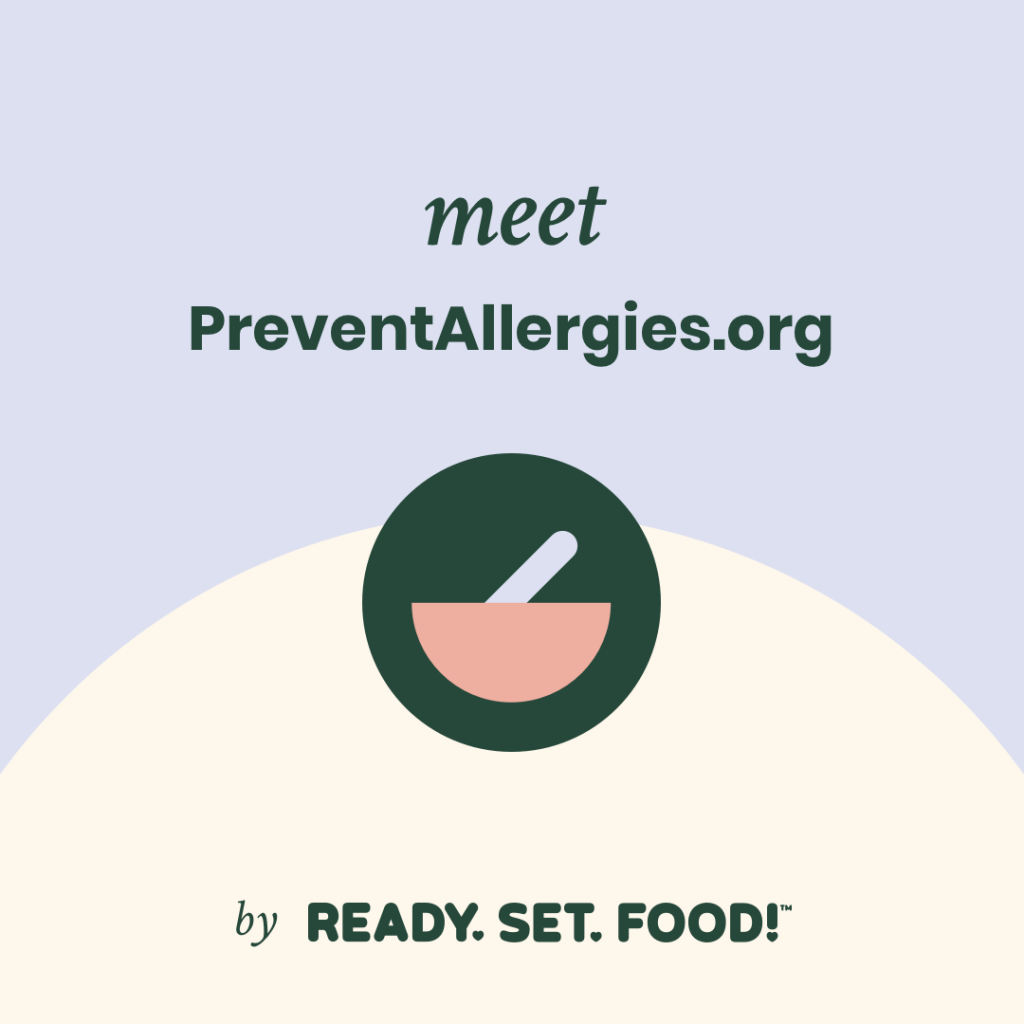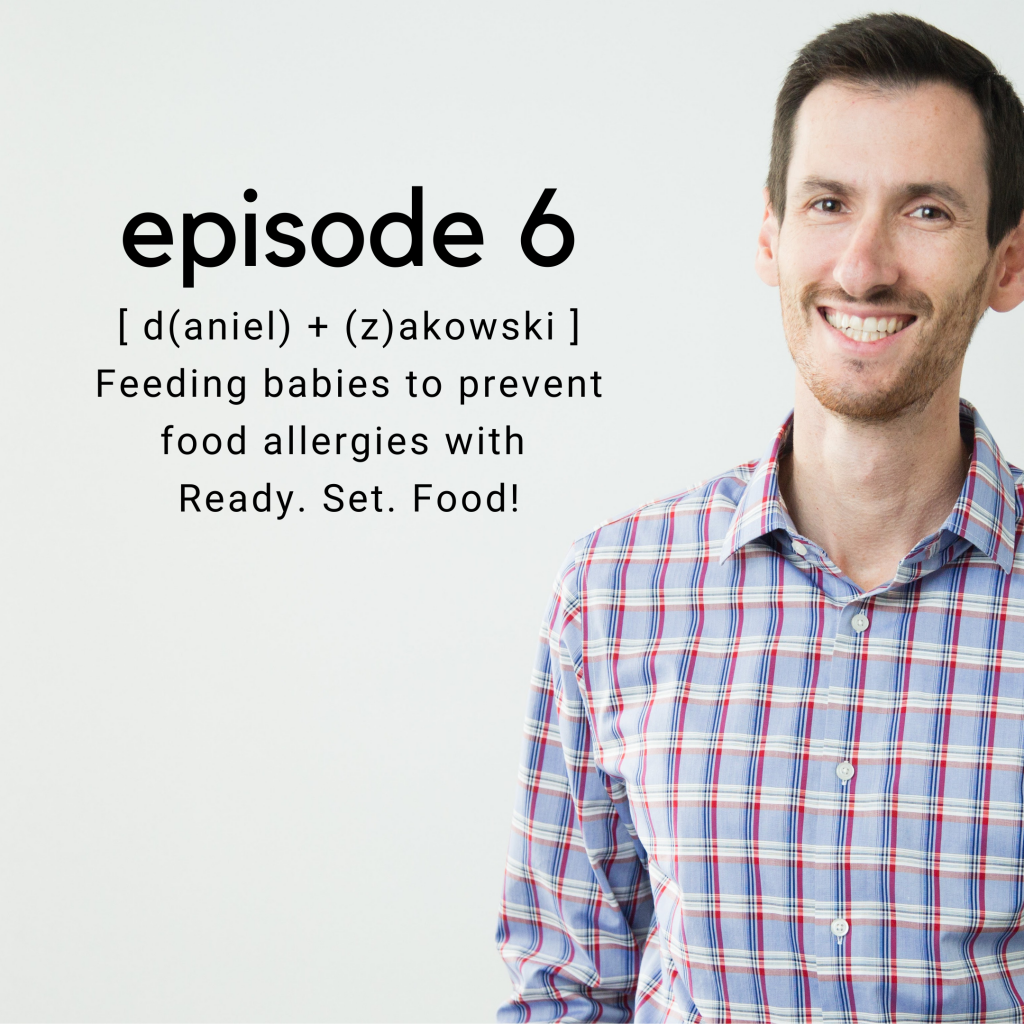Research shows that 80% of food allergies in children could have been prevented … what does this mean and how can we use this information to help your child?
Prevention is possible.
Clinical studies show that up to 80% of peanut, egg, and milk allergies can be prevented. The three most commonly cited studies include The LEAP (Learning Early about Peanut) study which focused on giving small amounts of peanuts to babies frequently and on an on-going basis; the PETIT (Two-step egg introduction for prevention of egg allergy in high-risk infants with eczema) trial – looking at egg introduction, and the EAT (Enquiry About Tolerance) trial – where multiple allergenic foods (peanut, egg, milk, sesame, fish and wheat) were introduced early in a child’s diet to determine possible prevention of food allergies.
A very recent research study (March, 2020) entitled “Age Differences in Food Reaction Severity During Oral Food Challenges in a Large Pediatric Population” retrieved from: (https://www.jacionline.org/article/S0091-6749(19)31863-9/fulltext) shares the findings that EVERY MONTH YOU WAIT in introducing allergenic foods to your baby poses increased risks for more severe reactions and that babies generally have more mild reactions. This research supports the notion that the earlier introduction the better for introducing allergens to your child. At this time they are recommending the age of 4 months in line with the protocols determined through their research.
Should I feed my baby common allergens?
The short answer is yes. Now this goes against everything that was dictated at the time when my babies were infants (early 2000’s). At that time, doctors advocated against introduction of common allergens (in particular peanuts and tree nuts) for the FIRST THREE YEARS of life! Unfortunately, this was not the best advice for our children and could have unnecessarily caused the development of food allergies in many children.
When SHOULDN’T I give my baby allergens?
If you have a history of food allergies in your family, you will likely be very afraid of introducing common allergens into your baby’s diet. The research however suggests that you still should. Speak with your doctor and someone who is knowledgeable about the studies and findings cited above for guidance. Many doctors do not know or are not advocating for early allergen introduction despite this current body of evidence. If you have other children with allergies, or a family history of food allergies, you’re likely going to be quite cautious about this idea of feeding allergens to your baby. I know I would feel that way! What you need to know is that the safest time to introduce these foods to your child is when they are infants. if it were me and I had a new baby, I would be doing this under medical supervision and very cautiously – with small amounts. Knowing what this research has taught us however is that babies have milder reactions and benefit from early exposure to PREVENT the development of allergies, so holding off on introducing them to these foods could in fact support the development of food allergies.
The contraindications for holding off on introducing these allergens are two things:
- If your child has ALREADY experienced an allergic reaction to a food and has a history of allergies.
- If your child has severe eczema.
With my daughter Kate, she had both of these warning signs very early on and in her case, she has true anaphylactic food allergies. She had a reaction to dairy as an infant and even during nursing demonstrated signs of reactions (hives after feeding, severe eczema, asthmatic symptoms with difficulty breathing and coughing).
Not sure?!
I can’t stress enough the importance of getting support if you’re unsure – I totally get it! It’s scary but the most important thing is setting your child up for health and preventing allergies if possible is a very good way to do that. I advocate for speaking with a knowledgeable doctor or paediatrician who can provide guidance for you on how to safely introduce foods to your baby. If you are looking for more information, you can contact me directly as well and I’m happy to provide guidance and point you in the direction of other professionals who can help you. I also offer a free consultation if you want to reach out with any of your questions. Book yours now.
Included in my recommendations would be checking out the website: PreventAllergies.org

As a founding partner of this new resource, I am encouraging families and caregivers including medical professionals to check out the information provided on this site to educate about the possible benefits of early introduction of allergens. You can find out more here, including how to introduce allergens in a systematic and safe way.
On the Podcast:

I recently spoke with Daniel Zakowski, founder of Ready, Set, Food! Check out this podcast to learn more about Daniel’s business of supporting families to introduce allergens to their babies starting at 4 months of age. It’s a great conversation and worth listening to for more information on this topic of preventing food allergies through early introduction of allergens to your child’s diet.
Key Take-Aways:
There is evidence that supports the early introduction of foods and in particular common allergenic foods, to prevent allergies in children and promote tolerance. Everything that I have learned in my journey has been about finding the safe balance between avoidance and exposure to keep our children safe. Knowing how to safely expose your child to foods is KEY. Knowing that delaying introduction or unnecessarily avoiding foods can be detrimental to your child’s health and cause them to become allergic is an important consideration. Keeping children who can tolerate foods eating those foods is also essential. We need to maintain that tolerance.
I know it’s a lot to think about and can be scary. You are NOT ALONE. Please do not hesitate to reach out anytime for questions, support or to be pointed in the direction of other resources and support that you can be referred to as well. We are in this together.

